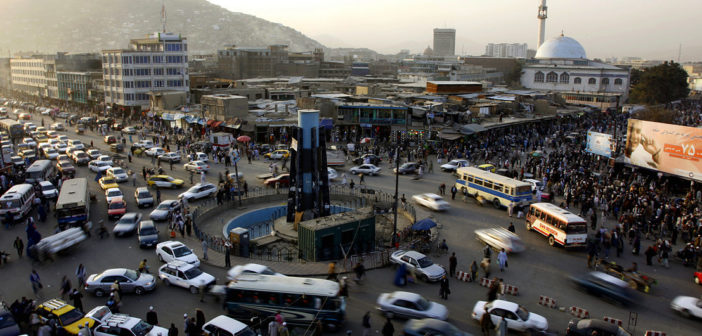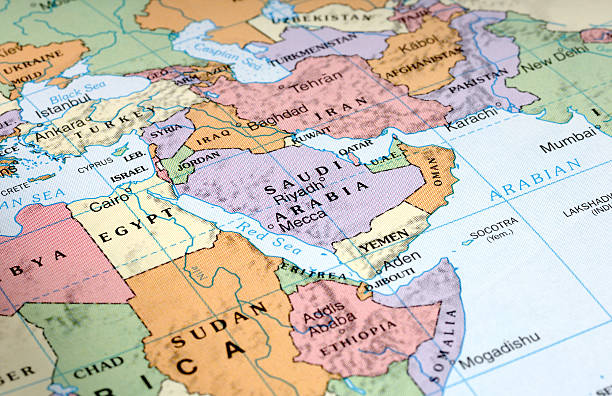
Some believe that first impression is the last impression. So, they say one never gets a second chance to make a first impression. For others, first impressions count but last impressions are forever.
I had my first impression of the Afghan mujahideen in Pakistan. In 1989 Turkish President Evren paid a visit there. I was his director of private office. The program also included a meeting with the mujahideen leaders. The President was going to tell them that since the Soviets had withdrawn from Afghanistan it was time to end their infighting and focus on rebuilding the country. The meeting was to take place at the guest palace where the President was staying. A few minutes before the meeting our Pakistani hosts told me that the leaders had arrived. Just to make sure that everything was ready, I went downstairs and peeked through the door. I saw like ten battle-hardened, somber looking warriors in their traditional costumes.
The President had barely finished his opening remarks when one of the leaders started to criticize the notion of secular government. He did not mention Turkey, but it was obvious what he had in mind. The President, visibly upset, did not allow him to continue for long and finished what he had to say. I just couldn’t help thinking that Afghanistan had a long, very long way to internal peace, let alone change. Over the years, I was not able to get past this first impression. And, looking at the peace talks in Doha, I sadly think that my first impression would probably be the last one.
The title of the Doha agreement is “Agreement for Bringing Peace to Afghanistan between the Islamic Emirate of Afghanistan which is not recognized by the United States as a state and is known as the Taliban and the United States of America”[i]. Throughout the text, one party is referred to as “the United States” and the other party as “the Islamic Emirate of Afghanistan which is not recognized by the United States as a state and is known as the Taliban”. Because, Washington “only recognizes” the Kabul government. But, it negotiates with them. President Trump talks to the Taliban deputy leader Mullah Abdul Ghani Baradar and may host him Washington. Such is the final episode of “the longest war”.
The peace deal calls for the full withdrawal of American troops from Afghanistan within 14 months. In return the Taliban will not allow any of its members, other individuals or groups, including al-Qaida, to use the soil of Afghanistan to threaten the security of the U.S. and its allies and will instruct its members not to cooperate with groups or individuals threatening their security.
A permanent and comprehensive ceasefire will be an item on the agenda of the intra-Afghan dialogue and negotiations. The participants of intra-Afghan negotiations will discuss the date and modalities of a permanent and comprehensive ceasefire which will be announced along with the future political roadmap of Afghanistan.
And, the US will seek economic cooperation for reconstruction with the new post-settlement Afghan Islamic government as determined by the intra-Afghan dialogue and will not intervene in its internal affairs.
Speaking at the White House, following the signing, President Trump said the Taliban had been trying to reach an agreement with the US for a long time. “I really believe the Taliban wants to do something to show we’re not all wasting time,” Mr. Trump added. “If bad things happen, we’ll go back with a force like no-one’s ever seen.”
One cannot but remember in this connection that on April 13, 2017, in a display of military power, the Trump administration dropped the “mother of all bombs” on caves used by Islamic State affiliates in eastern Afghanistan. Reportedly, dozens of militants were killed. A confident President said the bombing was another very, very successful mission. Afghan reaction was mixed.
And ten days later, Taliban militants dressed in Afghan military uniforms drove in two army trucks to the country’s largest military installation at Mazar-i-Sharif and launched the deadliest known attack on an Afghan military base in the country’s 18-year war, killing more than 140 unarmed soldiers, brothers in faith, who were emerging from Friday prayers.
The Afghan government and the “Islamic Emirate of Afghanistan which is not recognized by the US as a state and is known as the Taliban” are now to negotiate directly about how the country is to be governed.
The Islamic Emirate/Taliban now controls more territory than at any time since the US-led coalition drove the group out of Kabul in 2001. So, it is now ascendant, while the government in Kabul is struggling to put on a brave face.
The unity government in Kabul was the result of a US-brokered agreement between Ashraf Ghani and Abdullah Abdullah after both claimed victory in the 2014 presidential election. To defuse a political crisis that risked dividing Afghanistan along political and ethno-regional lines, Secretary of State John Kerry mediated the agreement, signed by the two leaders with Ghani as President, Abdullah as Chief Executive Officer and both committing to a “genuine and meaningful partnership” to govern together. Sadly, the two leaders were never able to bridge their differences over their respective roles and powers, leading to governmental dysfunction.
Afghanistan’s President Ashraf Ghani has been declared the winner of last September’s election following delays of nearly five months due to allegations of vote-rigging. According to officials, he was re-elected with 50.64% of the vote but Mr. Abdullah Abdullah has contested the result, declared victory, and vowed to form his own parallel government. So, yesterday there were two inauguration ceremonies in the Afghan capital.
The principal challenges for Kabul, as before, remain Afghan leaders forging a united front not only to negotiate with the Taliban, fight al-Qaeda, tribalism, warlordism and corruption but also to achieve better governance. In other words, yes there has been some progress but on the whole governments in Kabul and their Western supporters have failed to achieve their objectives in the “longest war”. Now, the question is whether the Afghan government would be able to match the Taliban at the table.
Many observers, particularly rights advocates are concerned about the implications of the deal for women, ethnic and religious minorities, education of young generations. Looking at the challenges facing Afghan women living even in the territories under Kabul’s control, they have every right to be alarmed. In 1934, Turkish women, were among the first in Europe to achieve the right to vote and run for elected office through a constitutional amendment. This was accomplished under the enlightened rule of Ataturk. He was the hero of our War of Independence, the founder of the Republic and country’s symbol of contemporary values. Yet, he remains the target of attacks by Turkey’s ungrateful Taliban.
…………………………………………………………………………………….
[i] https://qa.usembassy.gov/wp-content/uploads/sites/136/Agreement-For-Bringing-Peace-to-Afghanistan-02.29.20.pdf.pdf.pdf
Ali Tuygan, Ambassador (Ret’d) and former Undersecretary of the Turkish Foreign Ministry. The article is also published on his blog https://diplomaticopinion.com/2020/03/10/afghanistan-beyond-titles/#more-1468









